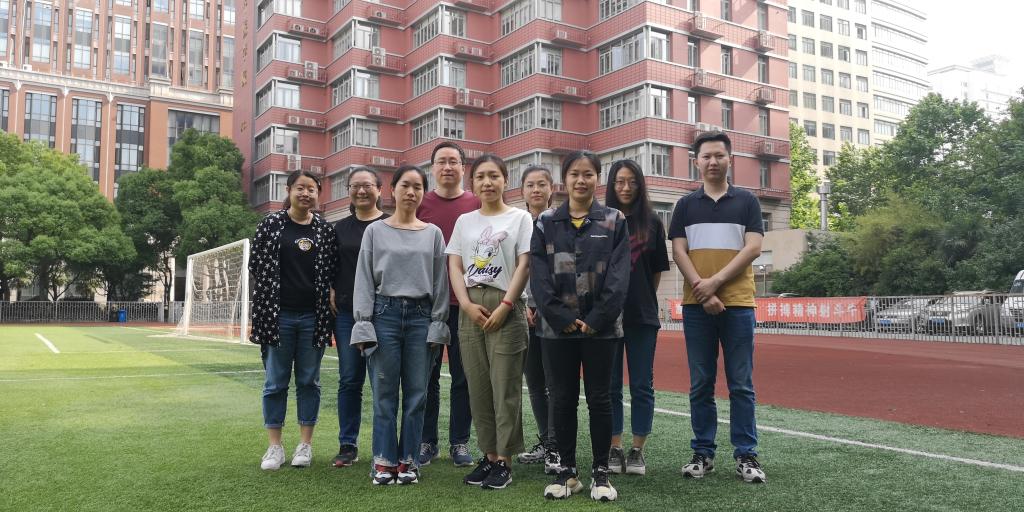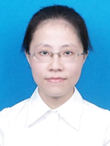Laboratory of Myeloid cell development and Function

Lab Leader: Zhaoyuan Liu
Lab Name: Laboratory of Myeloid cell development and Function
Lab Info:The studies in the lab focusing on understanding the developmental mechanisms and functions of myeloid immune cells in different developmental stage and pathological states, through cutting-edge single-cell sequencing and genetic lineage tracing.
Research interests include:
1) The development of myeloid cells in embryos and adults;
2) The functions of myeloid cells in tumor and transplantation.
Lab Members:
| Name | Title | |
| Yiwen Zhu | PhD student | zjgzyw286@163.com |
| Peiliang Cai | PhD student | caipliang@sjtu.edu.cn |
| Fei Gao | PhD student | gaofei990814@sjtu.edu.cn |
| Shuangyan Zhang | Technician | zsyan653@163.com |
| Zhongyuan Zhang | Technician | zhangzhy@shsmu.edu.cn |
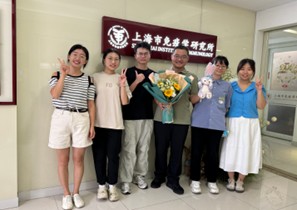
Laboratory of Infection and Immunity

Lab Leader: Zhaojun Wang
Lab Name: Laboratory of Infection and Immunity
Lab Info:Innate host immunity is the first line of defense against pathogen infection, playing a critical role in host resistance to pathogenic microorganisms. Prof Wang’s lab focuses on how leukocytes adapt to infectious or inflammatory environments and regulate their functions in response to diverse pathogens. We aim to elucidate the mechanisms by which signaling regulates innate immune cell functions in diverse physiological and pathophysiological contexts.
Lab Members:
Name |
Title |
|
Wu, Chenyun |
Lecturer |
wuchenyun@sjtu.edu.cn |
Du, Xinyue |
Post-doctoral research |
Dream27001@163.com |
Li, Qi |
PhD student |
liqi847846455@sjtu.edu.cn |
Kan, Shuo |
Master student |
kanshuo@sjtu.edu.cn |
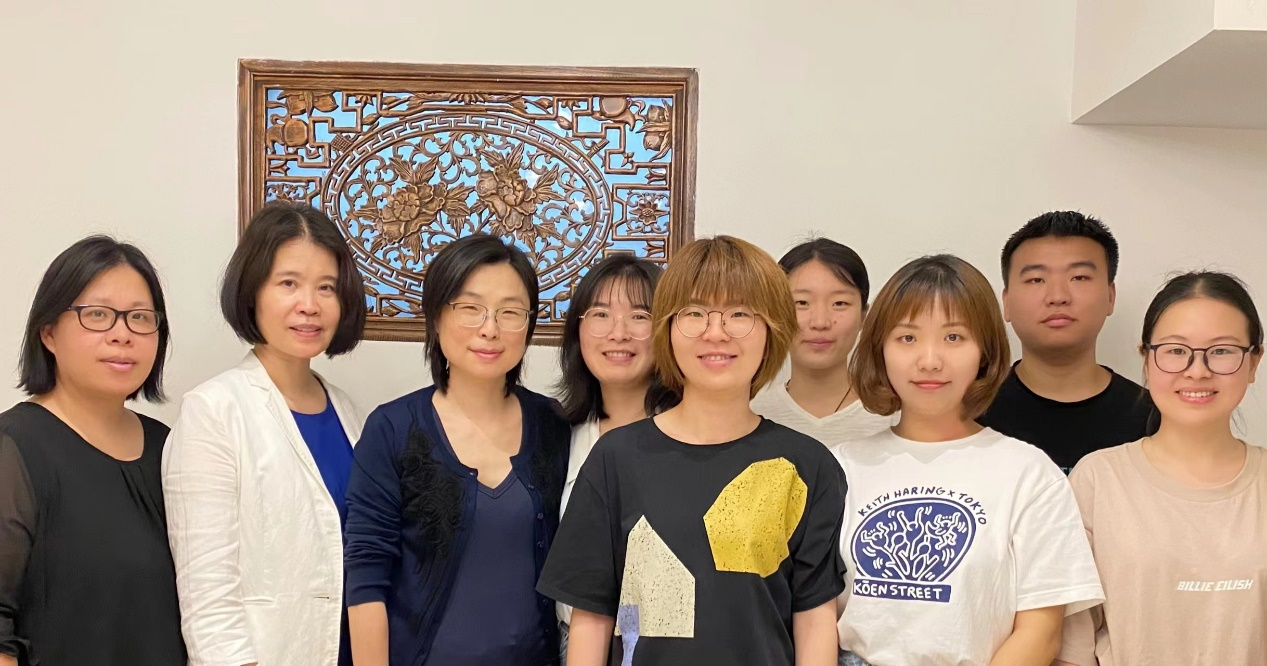
Laboratory of Mucosal Immune Regulation

Lab Leader: Bing Su
Lab Name: Laboratory of Mucosal Immune Regulation
Lab Info:The research in our laboratory focuses on the biology of signal transduction mediated by the intracellular protein kinase network such as the mitogen-activated protein kinase (MAPK) cascades and the mammalian target of rapamycine (mTOR) pathway in gut immune responses and blood vessel function/development. Our current studies have focused on the regulatory mechanism of MAPK and mTOR signaling pathways in intestinal stromal cells, macrophages, T cells and innate lymphoid cells and their roles in intestinal and lung inflammation, cancer, and intestinal fibrosis.The recent research work of the laboratory has been published in journals such as Nature(2021), Cell(2021,2019), Nature communications(2022,2018), EMBO J(2020), Molecular Cell(2017).
Lab Members:
Name |
Title |
|
Xiaodong Yang |
PI |
xdyang@shsmu.edu.cn |
Qijun Wang |
Co-PI |
qijun_wang@sjtu.edu.cn |
Ningbo Wu |
PI |
wuningbo@shsmu.edu.cn |
Chun Ruan |
Co-PI |
chunruan@sjtu.edu.cn |
Xiaoli Jiang |
Lab master |
jiangxiaoli@shsmu.edu.cn |
Dandan Wu |
Assistant lab master |
DandanWu1994@shsmu.edu.cn |
Hong Wang |
Senior lab master |
wangh2805@126.com |
Hongxiang Sun |
Postdoctor |
sun758426@sjtu.edu.cn |
Shujing Lai |
Postdoctor |
shujinglai@sjtu.edu.cn |
Yao Chen |
Postdoctor |
yaochen.immunity@gmail.com |
Song Li |
PhD student |
lis.barry@sjtu.edu.cn |
Xiaoyun Zhao |
PhD student |
xiaoyun630rf@sjtu.edu.cn |
Jingsi Jin |
PhD student |
Jingsi_Jin@sjtu.edu.cn |
Jianmei Tan |
PhD student |
tanjianmei@sjtu.edu.cn |
Lang Zou |
PhD student |
l.zou11@sjtu.edu.cn |
Hongqian Chen |
PhD student |
disannychen@sjtu.edu.cn |
Liang Li |
PhD student |
waire16@sjtu.edu.cn |
Yao Zhang |
PhD student |
zydoc0318@163.com |
Xinyu Wang |
PhD student |
381250842@qq.com |
Wei Ma |
PhD student |
417788327@qq.com |
Zhenglan Duan |
PhD student |
840272547@qq.com |
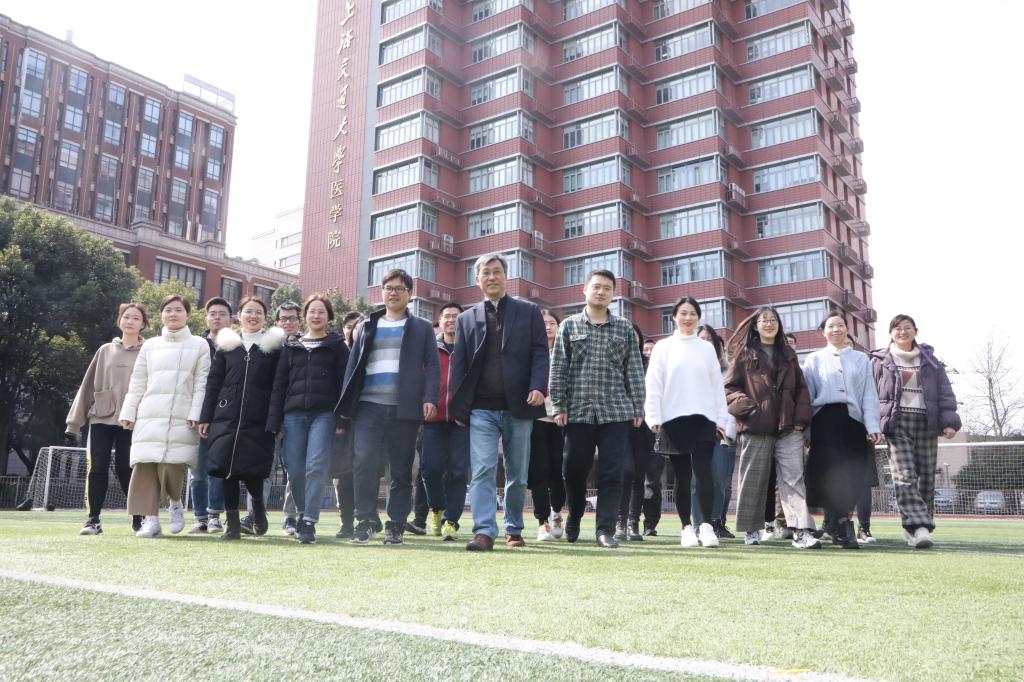
Laboratory of Antibody Diversification

Lab Leader: Leng Siew Yeap
Lab Name: Laboratory of Antibody Diversification
Lab Info:The research in the Yeap laboratory focuses on understanding the mechanisms of antibody diversification, specifically on how rare mutational outcomes from programmed DNA lesion processes in B cells contribute to anti-viral broadly neutralizing antibody (bnAb) activities or B cell-related diseases. Rare mutational outcomes on antibody genes such as insertion-deletions (indels), long complementarity determining region 3 (CDR3) and improbable mutations on certain nucleotides are bottlenecks that hinder the elicitation of bnAbs in vaccine strategies, resulting in the inefficiency of the immune system in fighting a fast evolving virus during a pandemic. We are interested in dissecting the genetic pathways that generate these rare mutational outcomes during Immunoglobulin (Ig) Somatic Hypermutation processes. Our lab has generated more than 40 mouse genetic models based on an in vivo hypermutating passenger-immunoglobulin B cell system and performed ultra-deep profiling of the mutational outcomes on the passenger-Ig gene to elucidate the pathways that generate the rare mutational outcomes and the effect of DNA sequences on mutation rate. Our ultimate aim is to generate humanized antibody mouse models based on our knowledge of antibody diversification processes to screen bnAbs and test vaccines. As the mutational outcomes during B cell receptor diversification processes also cause diseases such as autoimmune diseases and B cell cancers, we are also interested in collaborating with clinicians to identify the antibodies and antigens that resulted in these diseases.
Lab Members:
Name |
Title |
|
Qian Hao |
Assistant research fellow |
haoqian_2016@hotmail.com |
Shengqun Ouyang |
Technician |
shengqunouyang@163.com |
Bo Gao |
Postdoctoral fellow |
syaugaobo@163.com |
Chaoyang Lian |
Ph.D. Candidate (Class 2019) |
liansir@126.com |
Simin Luo |
M.S Candidate (Class 2019) |
siminluo@126.com |
Zi Yin |
M.S Candidate (Class 2020) |
yinzi1030@foxmail.com |
Wenyi Cao |
Ph.D. Candidate (Class 2020) |
caowenyi@sjtu.edu.cn |
Jinfeng Li |
Ph.D. Candidate (Class 2021) |
dnlijinfeng@163.com |
Kieran Thow |
Ph.D. Candidate (Class 2021) |
kieran.thow@protonmail.com |
Chuanzong Zhan (Graduated) |
Ph.D. Candidate (Class 2018) |
chuanzongzhan@163.com |
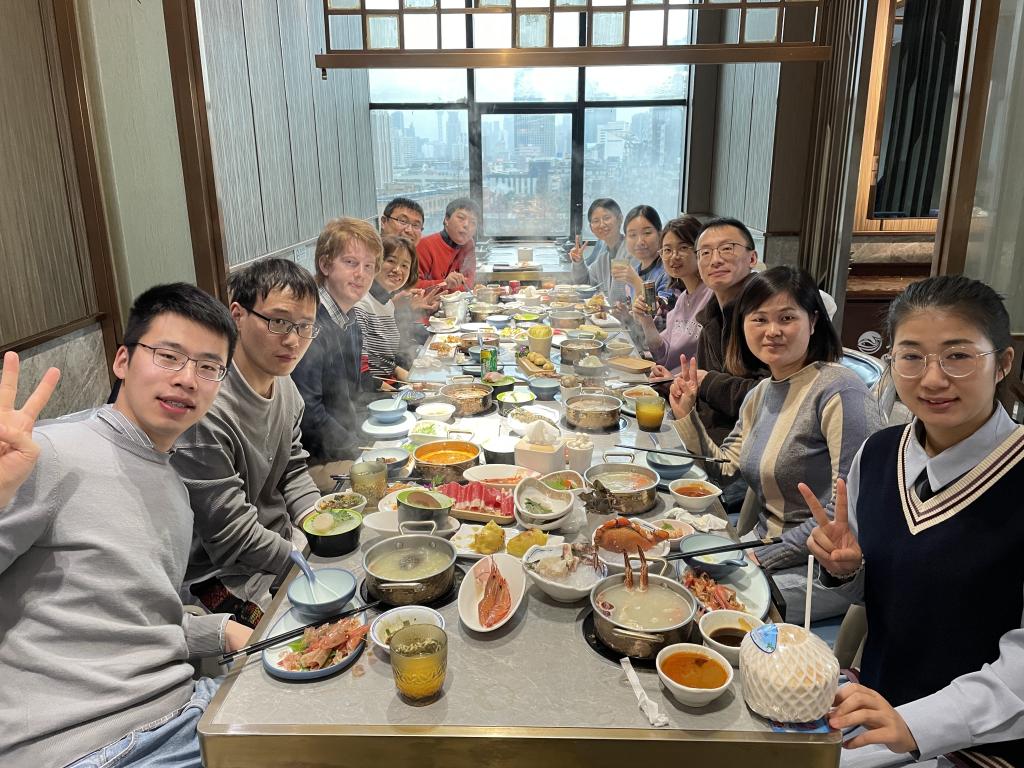
Laboratory of Innate Immune Dynamics

Lab Leader: Jing Wang
Lab Name: Laboratory of Innate Immune Dynamics
Lab Info:The main research interest in my laboratory is to understand in vivo dynamics and functions of innate immune cells (neutrophils, macrophages, etc.) during inflammatory responses and how hematopoietic and non-hematopoietic components coordinate in complex tissues and organs. We use cutting-edge technologies such as intravital live imaging and mouse genetic tools to dissect the cellular events that occur in vivo during inflammation. Our research focuses are (1) The cellular mechanisms of neutrophil migration and function in chronic inflammation. (2) The mechanisms that determine neutrophil heterogeneity and plasticity. (3) The therapeutic potential of targeting tumor associated neutrophils and macrophages.
Lab Members:
Name |
Title |
|
Naijun Miao |
Research Asistant |
|
Yuanyuan Wang |
Technician |
yuanyuanWang@shsmu.edu.cn |
Yina Wang |
Post-doc |
ynynwang@163.com |
Haixia Kang |
Ph.D student |
|
Yang Wang |
Ph.D student |
|
Jin Wang |
Ph.D student |
wangjin97@sjtu.edu.cn |
Wenying Zhao |
Ph.D student |
Zhaowenying666@qq.com |
Zhuning Wang |
M.Sc. student |
alewang@sjtu.edu.cn |
Rui He |
M.Sc. student |
rui_he0721@163.com |
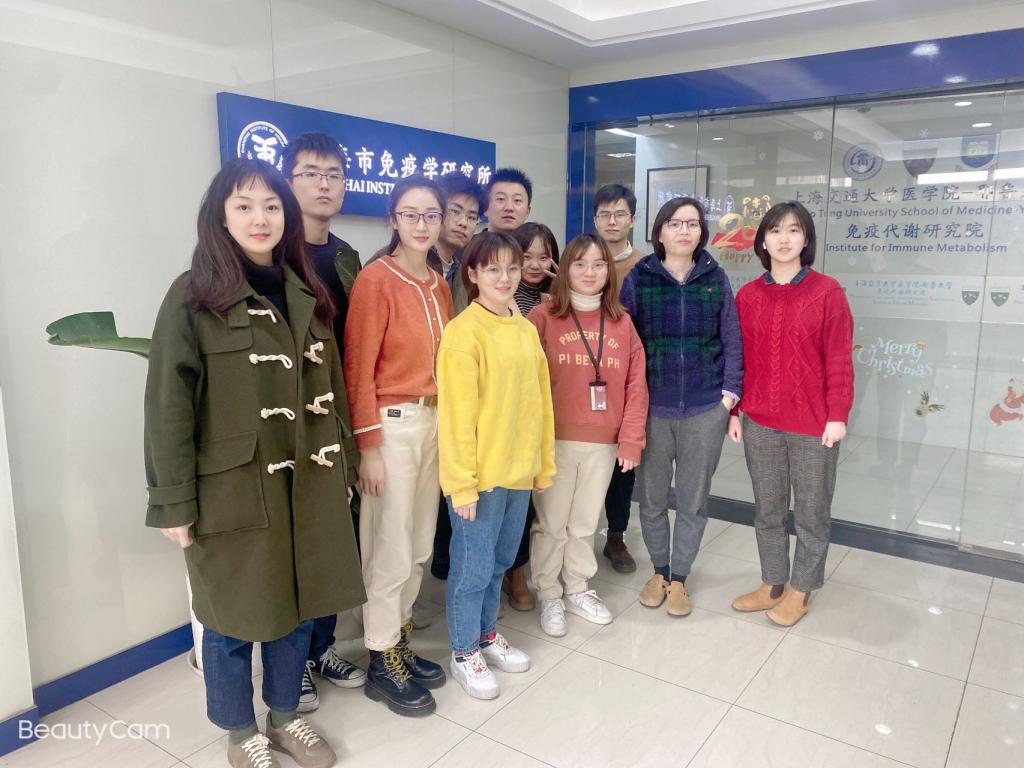
Laboratory of Myeloid Cell Biology and Metabolism

Lab Leader: Svetoslav Georgiev Chakarov
Lab Name: Laboratory of Myeloid Cell Biology and Metabolism
Lab Info:Obesity, defined as excess fat mass, increases risks for multiple metabolic diseases, such as type 2 diabetes, cardiovascular disease and several types of cancer. The obesity epidemic has intensified efforts to understand the mechanisms controlling obesity-induced tissue remodeling. Adipose tissue associated macrophages (ATM) are hypothesized to play central roles in these diseases,through their role as inflammatory mediators. In addition to inflammation, a prototypical macrophage function, ATM perform ‘extra’ tissue-specific functions termed accessory functions. One such putative accessory function is their metabolic activity. However, the role of ATM metabolism in shaping tissue remodeling during obesity is poorly understood. In our lab we propose to use a high dimensional flow cytometry-based proteomic screening combining metabolic activities, phenotype and epigenetic, called SCREEN3. This newly developed technic in our lab is easy to use and can be applied for human and mouse samples. In addition, the combination of SCREEN3 with human and mouse single cell RNA sequencing data will allow us to better understand ATM diversity in term of gene expression, phenotype, metabolism and epigenetic remodelling during disease.Finally using Hyperion Imaging Mass Cytometry (IMC) we will validate and characterize the crosstalk between ATM and their adipose tissue microenvironment
Lab Members:
Name |
Title |
|
Jing Tian |
assistant research fellow |
tianjingcn@163.com |
Jiaqian Xu |
assistant engineer |
xujiaqian@shsmu.edu.cn |
Hongkui Xiao |
postdoctor |
xiaohk2022@sjtu.edu.cn |
Yanan Hu |
PhD student |
1398571370@qq.com |
Xiaotong Yu |
Master student |
yuxiaotong1016@163.com |
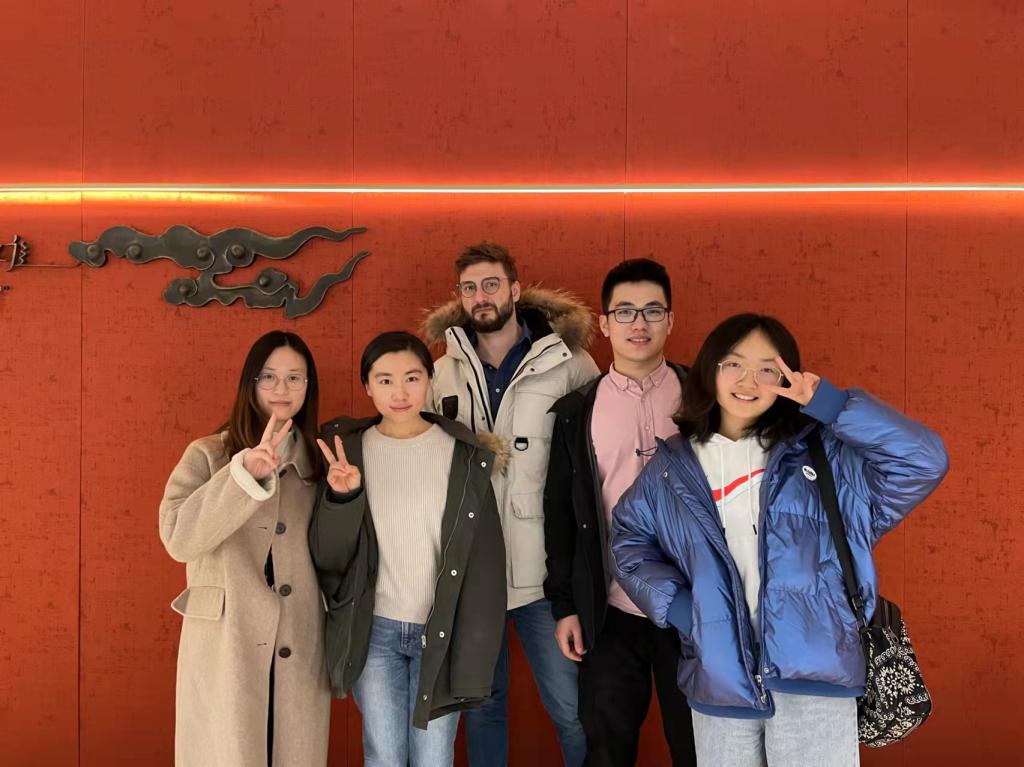
Laboratory of Genomics and Microbiome

Lab Leader: Lei Chen
Lab Name: Laboratory of Genomics and Microbiome
Lab Info:My lab study the complex immune system and its interaction with human microbiota through analysis of sequencing data. One focus is to use single cell RNA-seq to dissect immune cell heterogeneity, track their developmental lineages. Another focus is human gut microbiota, how their compositions are correlated with intestinal health or disease.
Lab Members:
Name |
Title |
|
Lin Lyu |
laboratory assistant |
affinis@sjtu.edu.cn |
Xue Li |
post-doctor |
eryelian@163.com |
Xing Wang |
master student |
17803868386@163.com |
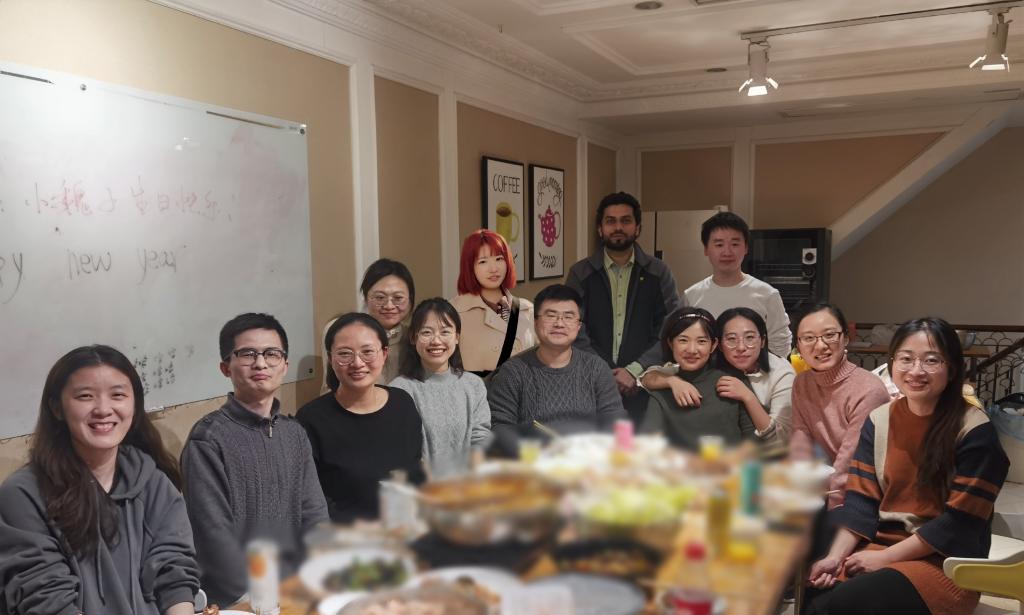
Laboratory of Humoral Immunity and Immunotherapy

Lab Leader: Fubin Li
Lab Name: Laboratory of Humoral Immunity and Immunotherapy
Lab Info:Our research interest mainly includes: 1) to elucidate how different antibody functions, such as agonistic and pathogenic function, are regulated by antibody intrinsic and extrinsic factors, and to develop novel methods to modulate antibody activity based on the understanding of fundamental principles, including strategies for optimizing agnostic cancer immunotherapeutic antibodies; 2) to understand how protective and autoreactive B cell differentiation is regulated, as well as the function of novel B cell subsets, such as CD11c+ age-associated B cells, and develop B cell-based methods for diagnosis and treatment. Our major findings include: (1) Agonistic human anti-CD40 antibodies require hinge rigidity for immunostimulatory and antitumor activities (Nature Communications 10(1): 4206.); (2) Excessive CD11c+Tbet+ B cells promote aberrant TFH differentiation and affinity-based germinal center selection in lupus (PNAS 116(37):18550-18560.).
Lab Members:
Name |
Title |
|
Huihui Zhang |
Associate Professor |
huizha@shsmu.edu.cn |
Yan Zhang |
Technician |
yanzhang09@sjtu.edu.cn |
Mengna Zheng |
Technician |
zheng_mn@163.com |
Shunjun Liu |
Ph.D. Candidate |
lsj937175387@sjtu.edu.cn |
Shihao Tian |
Ph.D. Candidate |
sjtianshihao@sjtu.edu.cn |
Mi Zhang |
M.S Candidate |
mi.zhang@sjtu.edu.cn |
Yuan Jiang |
M.S Candidate |
jiangy-77@sjtu.edu.cn |
Zhipeng Yu |
Ph.D. Candidate |
zhipeng_yu@qq.com |
Yingying Cao |
Ph.D. Candidate |
2917295413@qq.com |
Chunli Sun |
M.S Candidate |
scl169533757@126.com |
Xiaoqian Duan |
financial assistant |
amyduan78@qq.com |
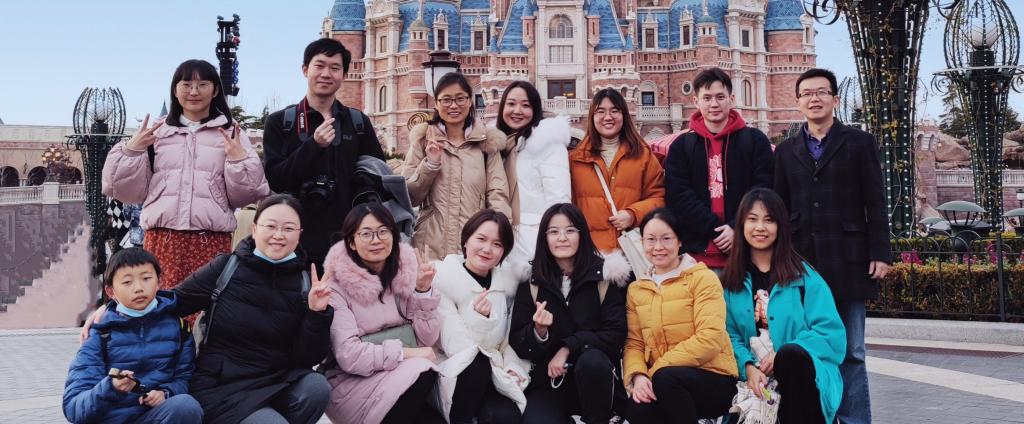
Laboratory of Immunometabolism

Lab Leader: Lei Shen
Lab Name: Laboratory of Immunometabolism
Lab Info:We focus on the interaction between the immune system and metabolism in the context such as metabolic diseases where immune cells modulate whole-body metabolism, and immune cells development where cell-intrinsic metabolic programs control the fate and function of immune cells. Our lab current research directions include: 1. To define the immune mechanisms of obesity-induced insulin resistance;
2. To decipher the metabolic programs that control Innate Lymphoid Cells (ILC) development and function.
Lab Members:
Name |
Title |
|
Jiping Sun |
Associate Professor |
|
Xiaohui Su |
Technician |
|
Huasheng Zhang |
Ph.D. Candidate (Class 2016) |
|
Lin Hu |
Ph.D. Candidate (Class 2020) |
2582680228@qq.com |
Youqin Zhang |
Ph.D. Candidate (Class 2019) |
|
Dongdi Wang |
Ph.D. Candidate (Class 2020) |
|
Jingjing Zhang |
Ph.D. (2016 Graduate student) |
|
Hongshen Niu |
Ph.D. (2015 Graduate student) |
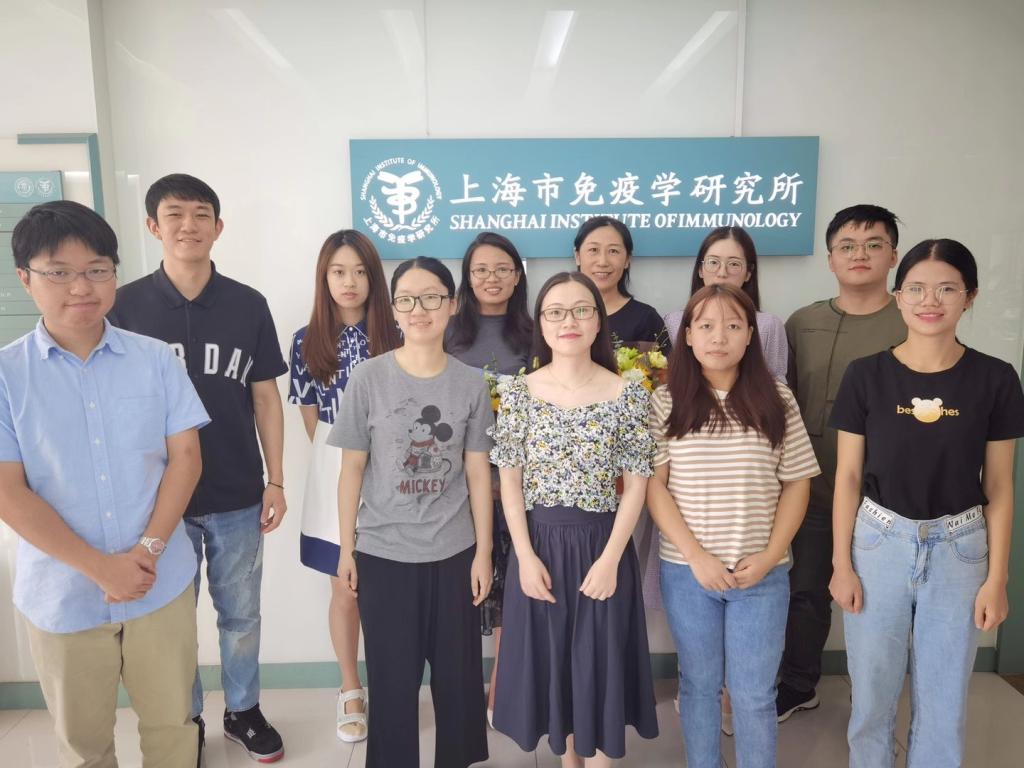
Laboratory of RNA Epigenetics &Immunity

Lab Leader: Huabing Li
Lab Name: Laboratory of RNA Epigenetics &Immunity
Lab Info:There are more than 100 types of different chemical RNA modification, among which m6A, m1A, m5C, pseudoUridine and APA are the major ones. HBL lab has made a series of pioneering discoveries in the m6A studies, won international reputations in the field, and laid solid experimental foundation. m6A research has been the frontier of the epigenetics field, but it is under explored for other types of RNA modifications, especially the cross-talks among those RNA modifications in response to environmental stimulation are unknown. Immune cells, especially T cells and macrophages in various inflammatory disease and tumor, provide an ideal perspective to explore this frontier.Combine mouse reverse genetics and state-of-art omics techniques, our research focuses on the following areas:
(1) Function of m1A modification in T cells and macrophages;
(2) Function of pseudouridine modification in T cells and macrophages;
(3) Function of APA modification in T cells and macrophages;
(4) Develop inhibitors to those RNA modification and apply to tumor immunotherapy;
(5) Cross-talks of those RNA modifications. Our lab website:www.hua-binglilab.com.
Lab Members:
Name |
Title |
|
Jing Zhou |
Associate Professor |
jingzhou@shsmu.edu.cn |
Yajuan Hao |
Assitant Professor |
haoyajuan@sjtu.edu.cn |
Kaiqiong Mao |
Technician |
kaiqiong.mao@sjtu.edu.cn |
Mei Yang |
Technician |
yangmei@shsmu.edu.cn |
Yatao Zhou |
Technician |
zhouyatao@sjtu.edu.cn |
Xuemin Cai |
Technician |
1434578027@qq.com |
Xingli Zhang |
Postdoctoral Fellow(2019) |
zhangxingli@shsmu.edu.cn |
Xuefei Wang |
Postdoctoral Fellow (2019) |
wangxf@shsmu.edu.cn |
Jingyu Li |
Postdoctoral Fellow(2020) |
lijy@shsmu.edu.cn |
Chenbo Ding |
Postdoctoral Fellow(2021) |
chenbo.ding@sjtu.edu.cn |
Jiansong Huang |
Postdoctoral Fellow(2022) |
huangjiansong@stju.edu.cn |
Baiwen Chen |
Postdoctoral Fellow(2022) |
18111260018@fudan.edu.cn |
Shan Miao |
Ph.D. student (2019) |
shan.miao@sjtu.edu.cn |
Yunzhu Chen |
Ph.D. student (2020) |
yzchen2020@163.com |
Xiaohan Song |
Ph.D. student (2021) |
aurorasxh@sjtu.edu.cn |
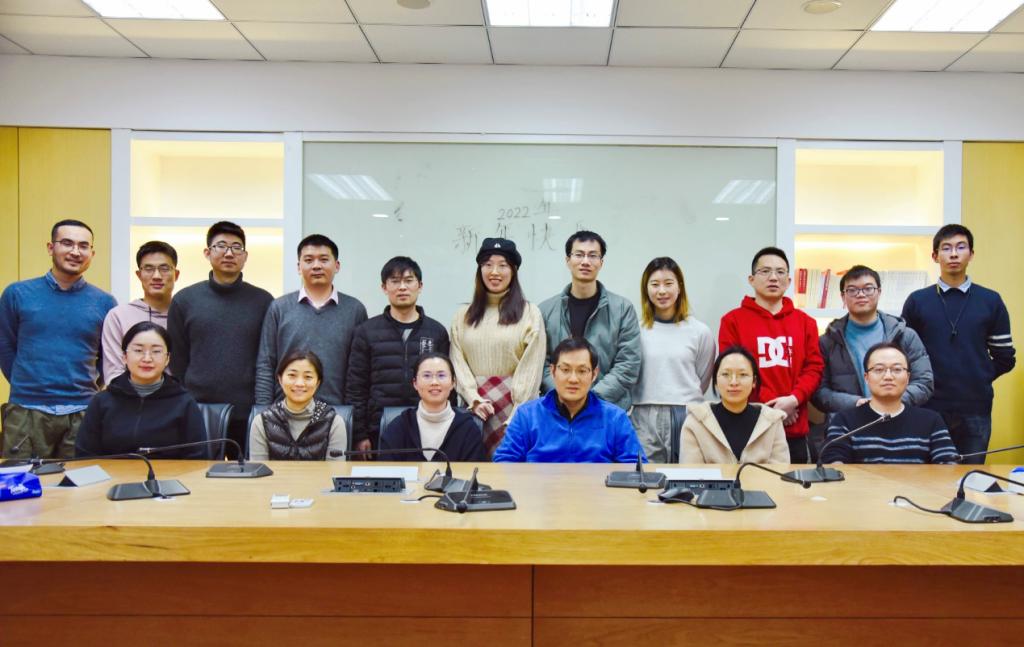
Laboratory of Immune Cell Signaling and Metabolism

Lab Leader: Feng Wang
Lab Name: Laboratory of Immune Cell Signaling and Metabolism
Lab Info:Research Interests:The research in my laboratory focuses on the mechanism of antigen recognition, signaling transduction and metabolic regulation of T lymphocytes. Three research directions include: (1) Regulation of immune cell signaling by naturally occurring metabolites; (2) The role of TCR signaling and repertoire in anti-tumor immune response; (3) The mechanism of anti-tumor immunity and autoimmunity induced by immune checkpoint blockade.
Lab Members:
Name |
Title |
|
Lingjie Luo |
Associate Professor |
|
Weifang Wang |
Technician |
weifangw521@shsmu.edu.cn |
Qinlan Wang |
Postdoc |
|
Cuixia Yang |
Postdoc |
|
Mengyuan Xu |
Technician |
m18360856929@163.com |
Yinong Chao |
Ph.D. Student |
ValentChao@126.com |
Wenhua Liang |
Ph.D. Student |
liang028l@163.com |
Mingzhu Yu |
Ph.D. Student |
|
Xiaoxue Li |
Ph.D. Student |
|
Jianfeng Pang |
Master Student |
|
Yuge Liang |
Master Student |
1908190876@qq.com |
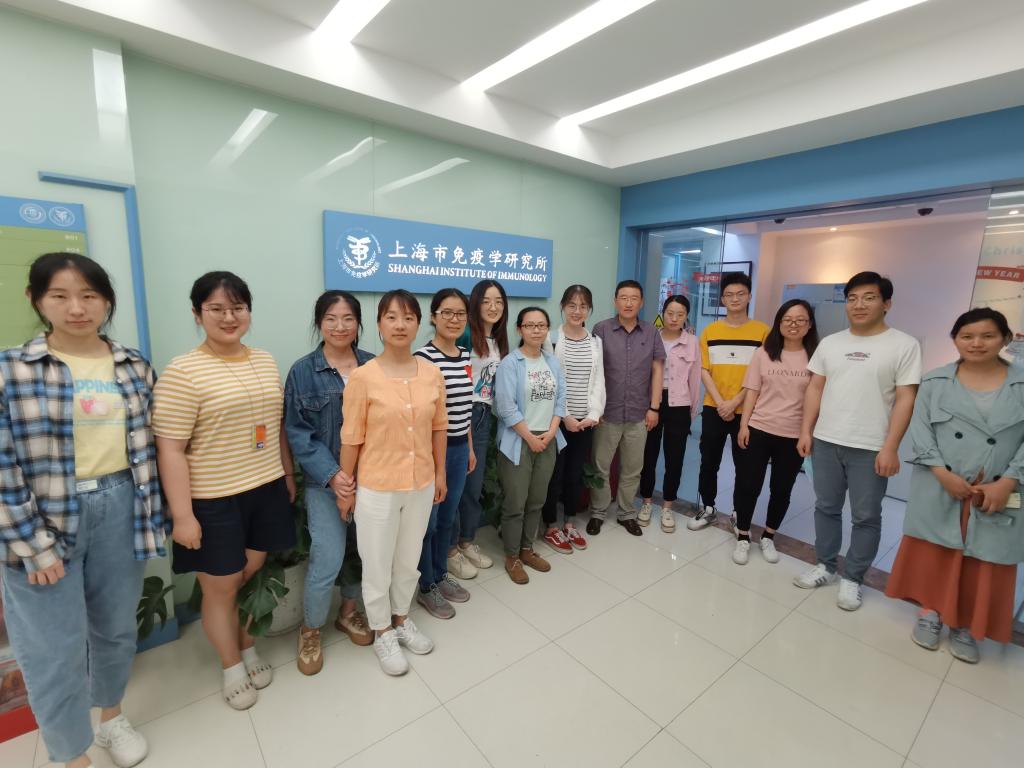
Laboratory of Virus-host Interaction

Lab Leader: Qiming Liang
Lab Name: Laboratory of Virus-host Interaction
Lab Info:Research in my laboratory focuses on the interactions between virus and host, specifically emphasizing the oncogenic virus Kaposi sarcoma-associated herpesvirus (KSHV) and emerging pathogen Zika virus (ZIKV) and SARS-CoV-2. We utilize mutiple apporaches to dissect the molecular mechanisms by which viruses evade our immune system and cause the disease. Our recent work is published on Nature Immunology (2022), Cell Stem Cell (2016, 2020), Med (2021), and PLOS Pathogens (2021, 2022).
Lab Members:
POSTDOCTORS
2016-2019 Changrun Guo, Ph.D. (Jilin University)
2017-2019 Xin Wang, Ph.D. (Nanjing Agricultural University)
2020-2022 Jingjiao Li, Ph.D. (Shanghai Jiao Tong University)
2021-present Shupeng Dong, Ph.D. (Shanghai Jiao Tong University)
GRADUATE STUDENTS
2016-2021 Shupeng Dong, Ph.D.
2017-2021 Xing Yang, Ph.D.
2018-present Yafei Qu, Ph.D. candidate
2019-present Weili Wang, Ph.D. candidate
2020-present Jingfan Zhou, Ph.D. candidate
2020-present Biyao Chen, Ph.D. candidate
2020-present Peixian Dong, Master candidate
2021-present Xiaoqian Wang, Ph.D. candidate
2021-present Qingyu Guo, Ph.D. candidate
2021-present Xue Xu, Master candidate
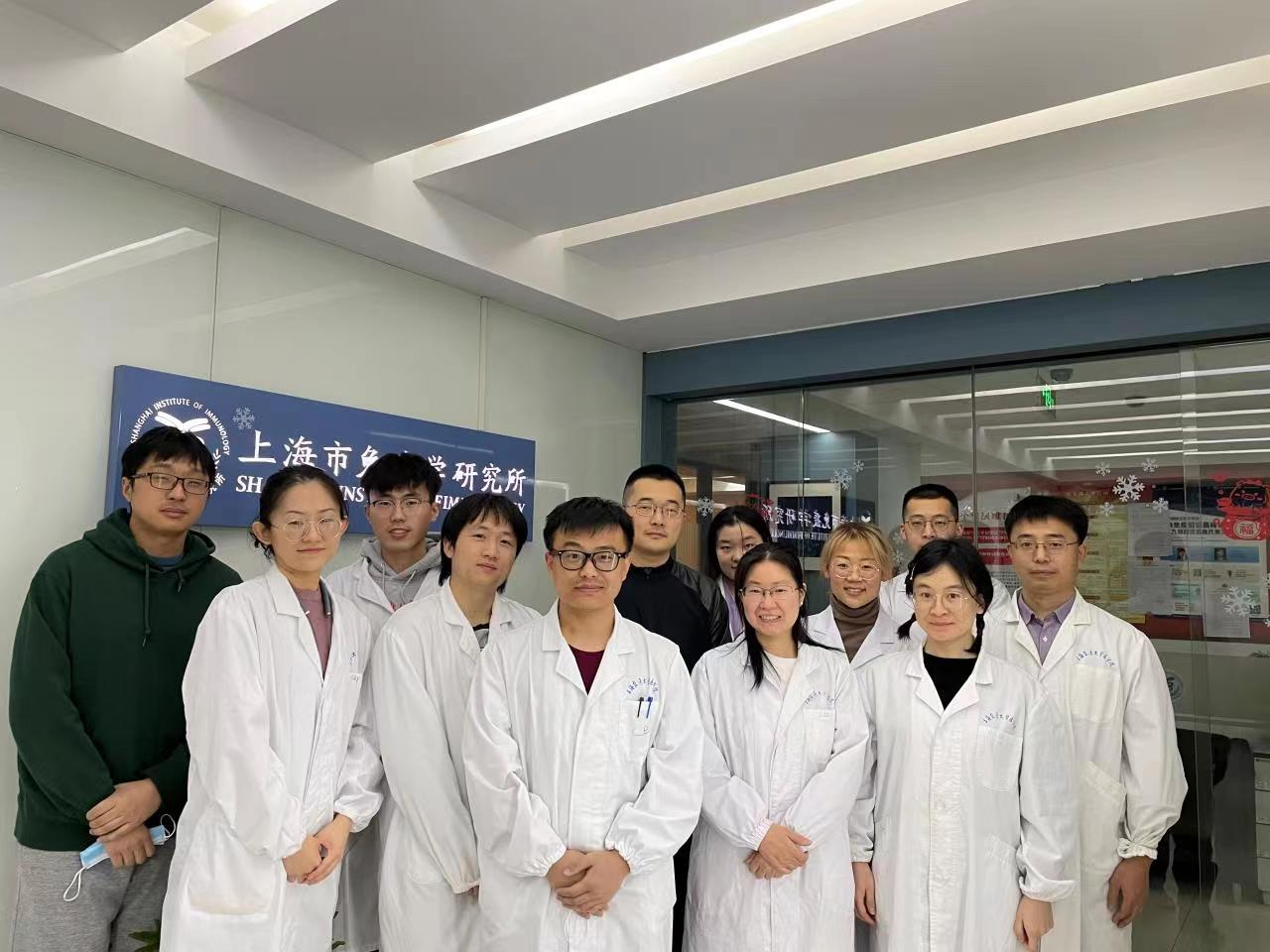
Laboratory of Immunoregulation and Immune Intervention

Lab Leader: Nie Hong
Lab Name: Laboratory of Immunoregulation and Immune Intervention
Lab Info:The main research direction in my laboratory is the pathogenesis and immune intervention of autoimmune diseases, focusing on the relationship between inflammatory factors and immune cells. We are interested in traditional Chinese medicine and study the mechanism of natural small molecule compounds in the treatment of autoimmune diseases to explore new therapeutic targets. In addition, we investigate the key molecules of tumor development and their impact on the tumor microenvironment, focusing on the interaction between tumor cells and immune cells, and exploring the mechanism of tumorigenesis and immune intervention strategies.
Lab Members:
Name |
Title |
|
Yuanyang Yuan |
Associate Research Fellow |
tracy_yyy@126.com |
Jun Bai |
Technician |
13761818424@163.com |
Guojue Wang |
Ph.D. student |
wgj0422@163.com |
Ying Sun |
Ph.D. student |
1667546893@qq.com |
Shengzhe Li |
Ph.D. student |
462730420@qq.com |
Xinping Jin |
Ph.D. student |
302564848@qq.com |
Yunhui Liu |
M.S. student |
838531442@qq.com |
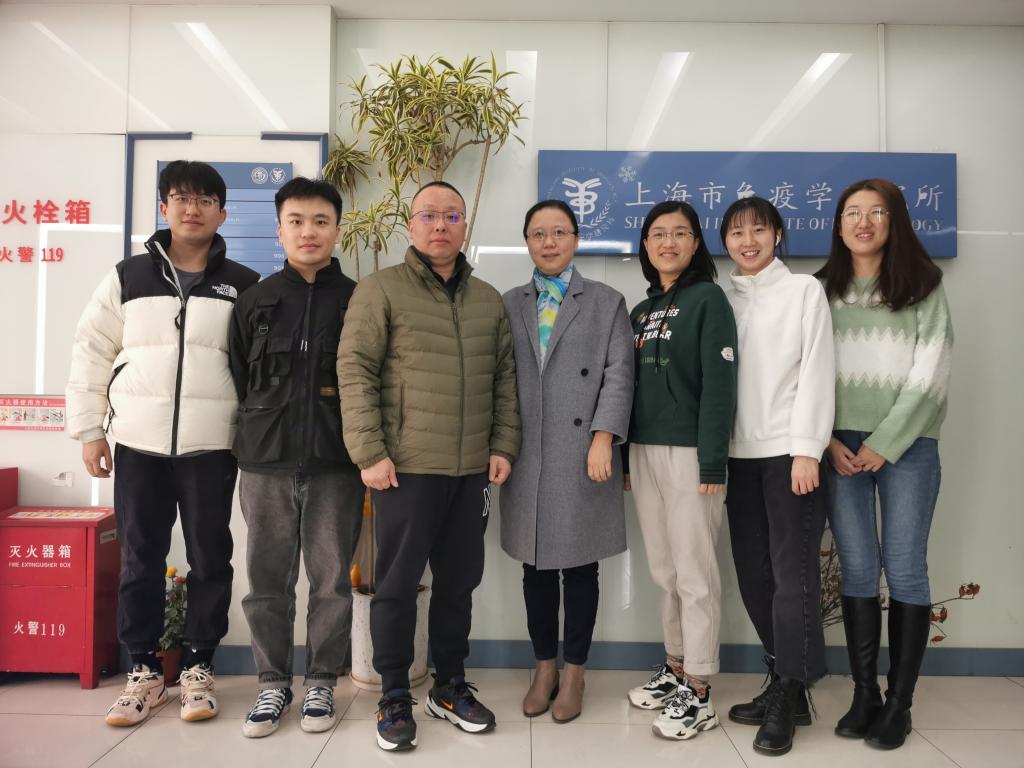
Laboratory of Inflammation and Cancer

Lab Leader: Xuefeng Wu
Lab Name: Laboratory of Inflammation and Cancer
Lab Info:The Inflammation and Cancer Research group, led by Dr. Xuefeng Wu, is consisted of one research associate, one research assistant, four PhD and two M.S. students. We have PhD student graduated recently. Our group focuses on the cellular and molecular mechanisms linking inflammation and tumor. Currently ongoing projects include: 1. Metabolic regulation of macrophage and dendritic cell; 2. Regulation of T/Treg cell antitumor immunity by cellular stress and homeostasis; 3. Regulation of immune responses by cross-talks between immune and tumor cells within Tumor Microenvironments and their function in cancer progression and metastasis. During the past few years, we have obtained grants from national and Shanghai funding agencies and published research papers in journals including Nature Communications, Journal of Immunology, European Journal of Immunology, and Theranostics. We have built up strong scientific research atmosphere and harmonious membership. Our group is working together aiming to develop drugs and new strategies for treating patients suffering from immunological diseases and cancers.
Lab Members:
Name |
Title |
|
|
Research Associate |
|
|
Research Assistant |
ljmljm515@sjtu.edu.cn |
|
Ph.D. Candidate (Class 2017) |
xianghongrui@sina.cn |
|
Ph.D. Candidate (Class 2018) |
jkljzy@163.com |
|
Ph.D. Candidate (Class 2021) |
rachel_yxtao@163.com |
|
Ph.D. Candidate (Class 2020) |
wwwanghuizi@163.com |
|
M.S. Candidate(Class 2020) |
2252996327@qq.com |
|
M.S. Candidate(Class 2021) |
leah1224@163.com |
|
Ph.D. (Class 2016, graduated) |
623922607@qq.com |
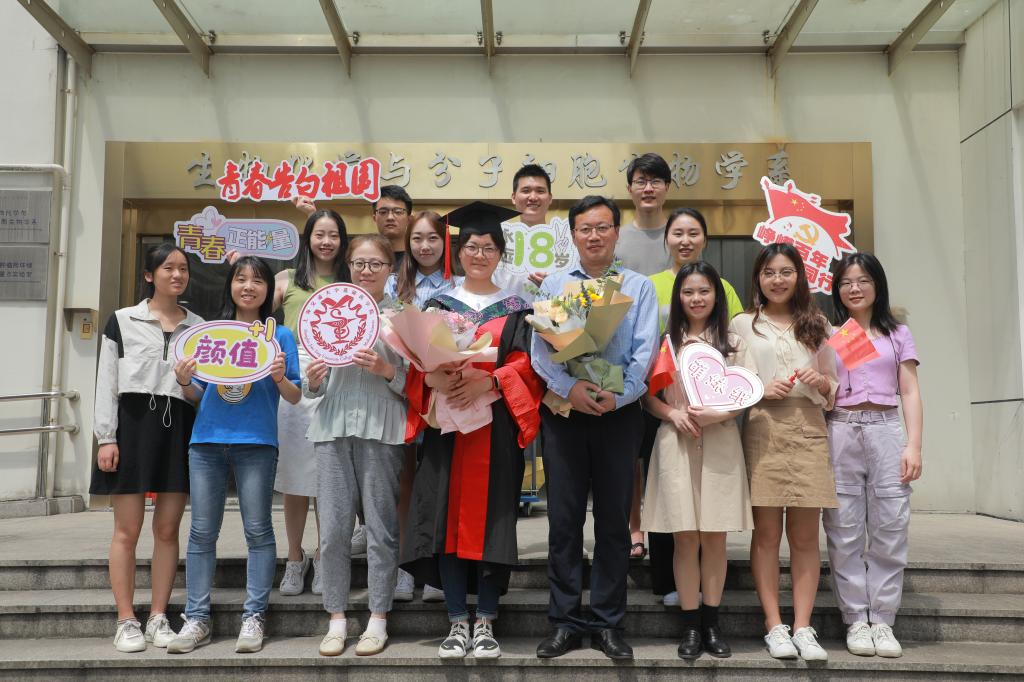
Laboratory of Tumor Multiomics and Immunotherapy

Lab Leader: Youqiong Ye
Lab Name: Laboratory of Tumor Multiomics and Immunotherapy
Lab Info:The research in my laboratory focuses on tumor microenvironment (TME) and immunotherapy. We take full advantage of the multi-omics data in human cancer, combine with innovative bioinformatics methods, basic experiments, clinical cohorts and other multi-scale methods to build an immunotherapy efficacy prediction model, to explore the regulatory roles of tumor (boundary) microenvironment on tumor progression and immune escape, providing new potential therapeutic strategies for immunotherapy (Cancer Cell, 2020; Nature Metabolism, 2019; Nature Immunology, 2019; Nature Communications, 2020, 2022; etc.). The main research contents as follows: 1) combining multi-scale data such as spatial transcriptomics, single-cell multi-omics, pathological images, etc., to construct approaches to accurately study the regulation roles of tumor boundary microenvironment in tumor immune microenvironment subtypes, metastasis, and immunotherapy resistance, and to develop new therapeutic strategies based on the targets in tumor boundary microevironment; 2) single-cell and other omics based clinical cohorts reveal tumor microenvironment-related characteristics to assist tumor immunotherapy.
Lab Members:
Name |
Title |
|
Yanhua Du |
Assistant Research Fellow |
yhdu@shsmu.edu.cn |
Rujuan Bao |
Assistant Engineer |
baorujuan@sjtu.edu.cn |
Yu Dong |
Postdoc |
yudong123@sjtu.edu.cn |
Zhenzhen Xun |
Ph.D. Candidate (Class 2020) |
xzz6238987@163.com |
Gaoyang Wang |
M.S Candidate (Class 2019) |
wanggaoyang@sjtu.edu.cn |
Xingyu Ding |
M.S Candidate (Class 2020) |
xy.ding@sjtu.edu.cn |
Jintong Shi |
M.S Candidate (Class 2021) |
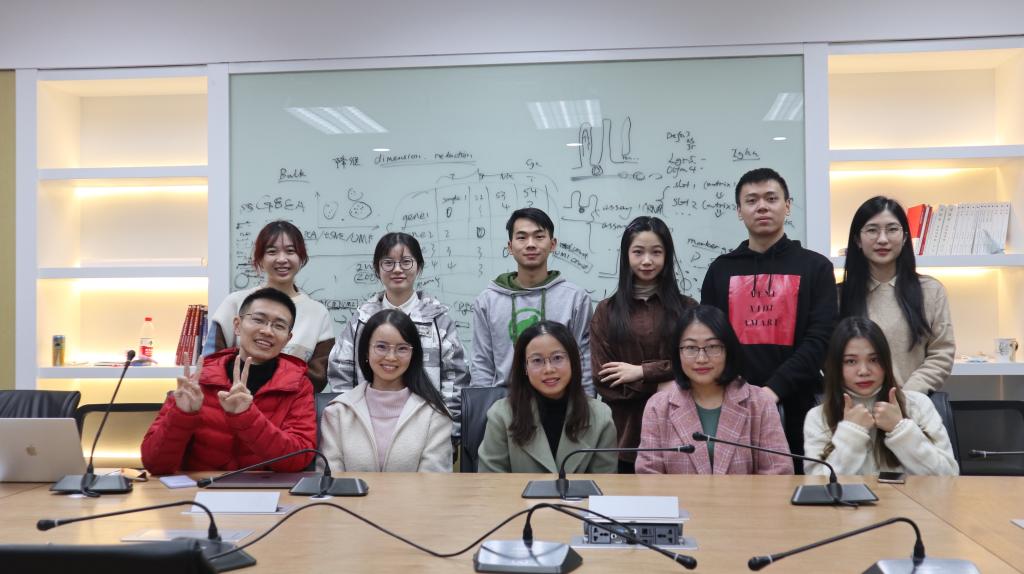
Laboratory of Cancer Immunotherapy

Lab Leader: Zhang Yan
Lab Name: Laboratory of Cancer Immunotherapy
Lab Info:Our laboratory has focused on the fundamental mechanism of immune recognition and cancer biology, including both mechanisms that uncover the link between autoimmunity and cancer immunity, and on translating the new concept for production of new generation of cancer immunotherapeutic.
Lab Members:
Name |
Title |
|
Yan Zhang |
Principal Investigator |
zhy3331a@shsmu.edu.cn |
Wenwen Li |
Research Associate |
1987liwenwen@163.com |
Meiyu Zhang |
Research Assistant |
myzhang23@163.com |
Dongqing Cao |
Technician |
dqzhang1333@163.com |
Kepeng Yan |
Research Assistant |
184499@shsmu.edu.cn |
Jinmei Li |
PhD student |
18573136540@163.com |
Benyu Wang |
Postgraduate |
wbysatm@sjtu.edu.cn |
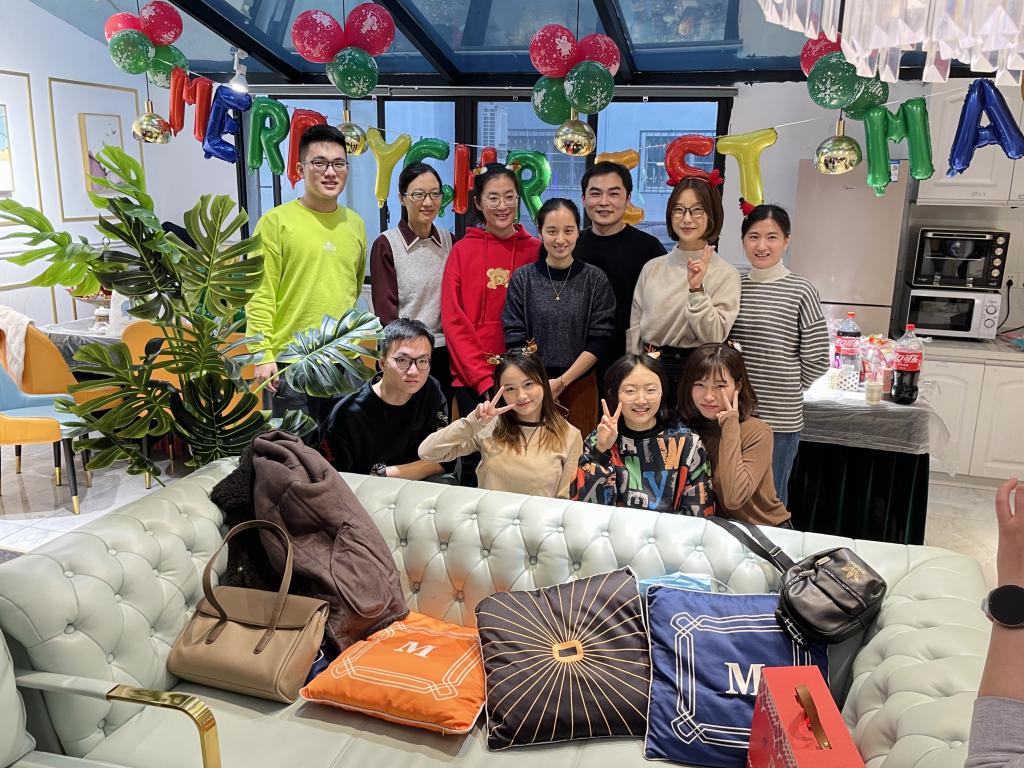
Laboratory of Cancer Immunometabolism

Lab Leader: Qiang Zou
Lab Name: Laboratory of Cancer Immunometabolism
Lab Info:Tumor immunotherapy has been clinically applied in the treatment of malignant tumors, with remarkable efficacy in some patients, but there is still a problem of low clinical response rate.The activity of immune cells is regulated by cell metabolism. Studying the metabolic regulation mechanism of tumor immunity will provide new ideas and strategies for further improving the efficacy of tumor immunotherapy.Our team mainly focuse on the metabolic regulation mechanism of tumor immune response and tolerance, using molecular, cellular, biochemical, animal model, clinical samples, etc., to study the key factors involved in the regulation of tumor immune metabolism and its mechanism, and explore the immunotherapy strategy to intervene tumor immune metabolism and improve tumor immune response.
Lab Members:
Name |
Title |
|
Xiaoyan Yu |
Associate researcher |
yuxy@shsmu.edu.cn |
Qiaoqiao Han |
Laboratory assistant |
hanqqsjtu@foxmail.com |
Zhilin Hu |
Postdoctor |
15051523864@163.com |
Jie Wan |
Postdoctor |
jwan_wind@163.com |
Feixiang Wang |
Postdoctor |
wangflyxiang@163.com |
Zhongqiu Wu |
Doctoral student |
965095439@qq.com |
Rui Ding |
Doctoral student |
dingrui@sjtu.edu.cn |
Yuerong Zhang |
Doctoral student |
zyr_snarey@163.com |
Xian Du |
Doctoral student |
1154539976@qq.com |
Qianming Lv |
Doctoral student |
lqm19951113@163.com |
Yi Fang |
Doctoral student |
esllovefy@foxmail.com |
Haiyan Huang |
Doctoral student (cooperative project with Ruijin Hospital) |
lilahy@qq.com |
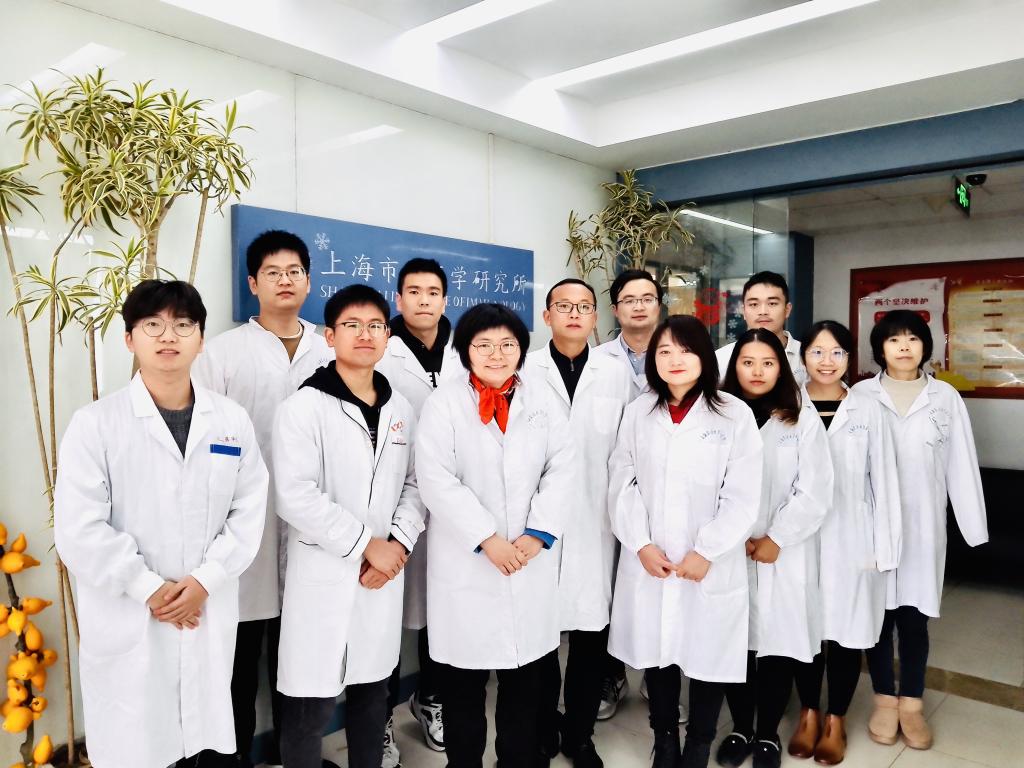
Laboratory of Molecular Immunology Laboratory

Lab Leader: Bin Li
Lab Name: Laboratory of Molecular Immunology Laboratory
Lab Info:Research in our laboratory mainly focuses on understanding molecular mechanism underlying the functional stability, plasticity and balance of FOXP3+ Regulatory T cells (Treg) and RORγt+ T helper 17 cells (Th17) in inflammatory diseases, as well as their therapeutically modulation, especially by compounds from Chinese Traditional Medicine. By using and developing Treg specifically depletion of key enzymatic subunits of FOXP3 complex animal models, as well as these state-of-art cutting-edge technologies in single cell sequencing and immune cell metabolism, we are revealing the functional role of peripheral tissue-specific Treg cells in vitro and in vivo in health and disease settings. We expect that our original findings will be translational to biomedical industry and be beneficial to human health.The recent research work of our lab has been accepted and publised in journals such as Nature Metabolism (Accepted), Nature Immunology (2021), Gastroenterology (2021), Jouranl of Immunology (2020), EMBO Reports (2020), Science Bulletin (2020, 2018)
Lab Members:
Name |
Title |
|
Dai Xueyu |
Associate Investigator |
daixueyu@@shsmu.edu.cn |
Li Dan |
Associate Investigator |
danli@@shsmu.edu.cn |
Wang Xiaoxia |
Postdoctor |
wangxiaoxia777@@shsmu.edu.cn |
Wang Zeng |
Postdoctor |
wz2573749689@@126.com |
Cheng Hao |
Postdoctor |
chenghaowj@@alumni.sjtu.edu.cn |
Chen Jieqiong |
Postdoctor |
jieqiong86@@hotmail.com |
Deng Biaolong |
Ph.D. Candidate |
w472171@@sjtu.edu.cn |
Xie Feng |
Ph.D. Candidate |
xiefeng0504@@163.com |
Zhai Tianhang |
Ph.D. Candidate |
tianhangzhai@@163.com |
Liu Xingnan |
Ph.D. Candidate |
liu_xjll@@163.com |
Huang Qianru |
Ph.D. Candidate |
hqr123@@sjtu.edu.cn |
Xu Zhan |
Ph.D. Candidate |
xz12114225@@163.com |
Zhang Weiqi |
Ph.D. Candidate |
chanvi7@@126.com |
Jiang Xue |
Ph.D. Candidate |
jiang874136500@@163.com |
Qin Zhizhen |
M.D. Candidate |
qinzhizhen1108@@hotmail.com |
Liang Rui |
Technician |
ruiliang2017@@163.com |
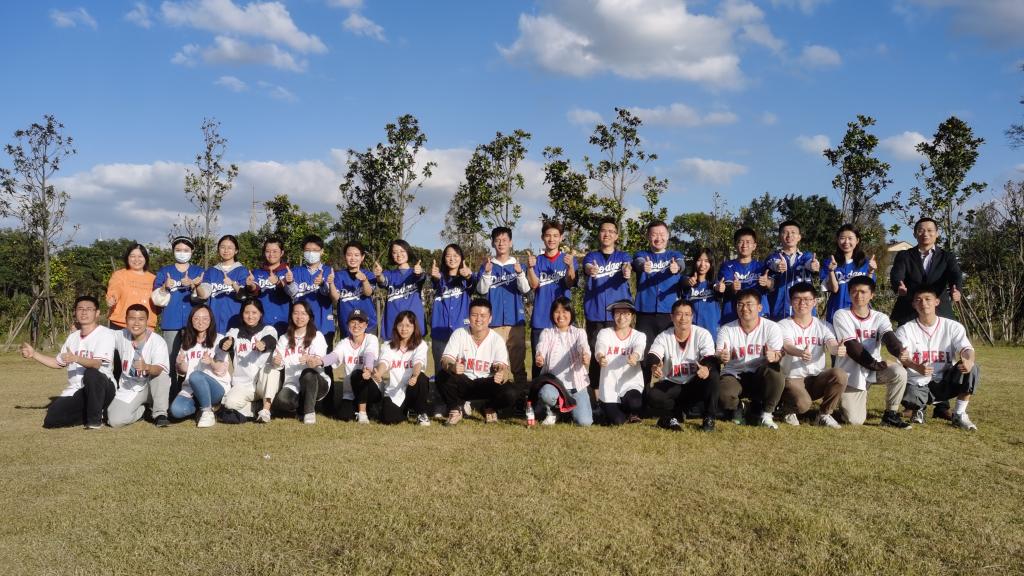
Laboratory of T cell Dysfunction in Human Diseases

Lab Leader: Ying Wang
Lab Name: Laboratory of T cell Dysfunction in Human Diseases
Lab Info:Research interest in my lab is the study on immunological mechanism and preventive strategies against lung-related diseases including infectious tuberculosis (TB), COVID-19 and lung cancer. In the investigations on TB, we have been working on the exploration of diagnostic biomarkers and development of novel preventive vaccines against TB and latent TB infection. We have screened panels of novel mycobaceterial antigens with high immunogenencity both in active TB patients and mice, which facilitates their further expectation for vaccine development and biomarker determination. In addition, some new-identified mycobacterial antigens were subjected to the study on the mechanisms of their immune regulatory function. Another interesting field lies in the screening the biomarkers for the checkpoint inhibitors against lung cancer. Multi-omics strategies has been used in this study to model the predictive and prognositic biomarkers for the clinical efficacy as well as resistance, which will be optional for the development of new immune-targets. Accordingly, new strategies are explored to improve the clinical efficacy of immune checkpoint inhibitors. During COVID-19 pandemics, we have investigated immune profiles of COVID-19 patients as well as in BBIBP-CorV vaccinees. In the last five years, we have successfully got more than 10 grants and published more than 30 publications. At present we have two faculty members, 5 graduate students and 1 post-doc. Prof Ying Wang has been selected in Shanghai Pujiang Talent program and Shanghai Academic Leader Program.
Lab Members:
Name |
Title/Position |
|
Ying-ying Chen |
Associate Professor |
yingying.chen@shsmu.edu.cn |
Ping Ji |
Technician |
jiping1975@aliyun.com |
Shu-jun Wang |
Senior technician |
shjwang70@126.com |
De-yun Meng |
Post-doc |
deyunmeng@163.com |
Cheng-cheng yao |
Doctorate Candidate |
609678782@qq.com |
Rui-ming Sun |
Doctorate Candidate |
272924653@qq.com |
Xiao-xu Yang |
Doctorate Candidate |
2362791613@qq.com |
Yang-dian Lai |
Doctorate Candidate |
laiyangdian@163.com |
Li-heng He |
Graduate |
865469737@qq.com |
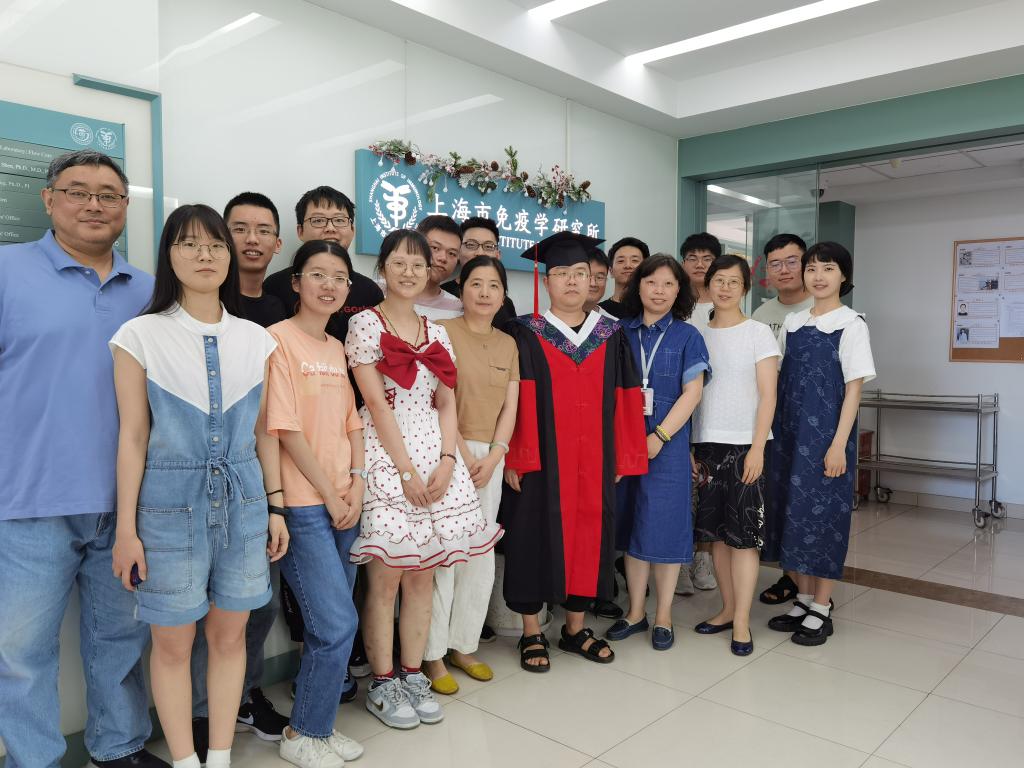
Laboratory of B cell Response and Tumor

Lab Leader: Huang Chuanxin
Lab Name: Laboratory of B cell Response and Tumor
Lab Info:In response to antigens such as vaccines B cells are activated and form germinal center B cells in lymphatic follicles, and eventually differentiate into plasma cells that can produce a large number of protective antibodies to eliminate pathogenic bacteria. The germinal center response leads to the formation of immune memory and production of high-affinity antibodies, and is critical for the effective role of the vaccine. Deficient B cell response can easily lead to low immune function and even immunodeficiency. Deregulated B cell differentiation within germinal center is associated with many human diseases, including autoimmune, allergic diseases, and B-cell lymphoma. We use a variety of genetic, cell biological and high-throughput sequencing technologies to reveal the transcriptional network underlying B cell responses. The goal is to better understand how B cells are programmed to produce antibodies via cell-intrinsic mechanisms and environmental clues, helping to develop new vaccine and therapeutic strategies for human B cell-related diseases.
Lab Members:
Name |
Title |
|
Chuanxin Huang |
Principal Investigator |
huangcx@shsmu.educn |
Wenqian Zhang |
Assistant Investigator |
dzzhangwenqian@126.com |
Fang Yang |
Lab manager |
yangfang@shsmu.edu.cn |
Qianwen Hu |
Ph.D candidate |
myhuqianwen@163.com |
Tingting Xu |
Ph.D candidate |
380175416@qq.com |
Lin Zhu |
Ph.D candidate |
1334510716@qq |
Tianyu Zhang |
Master candidate |
571827033@qq.com |
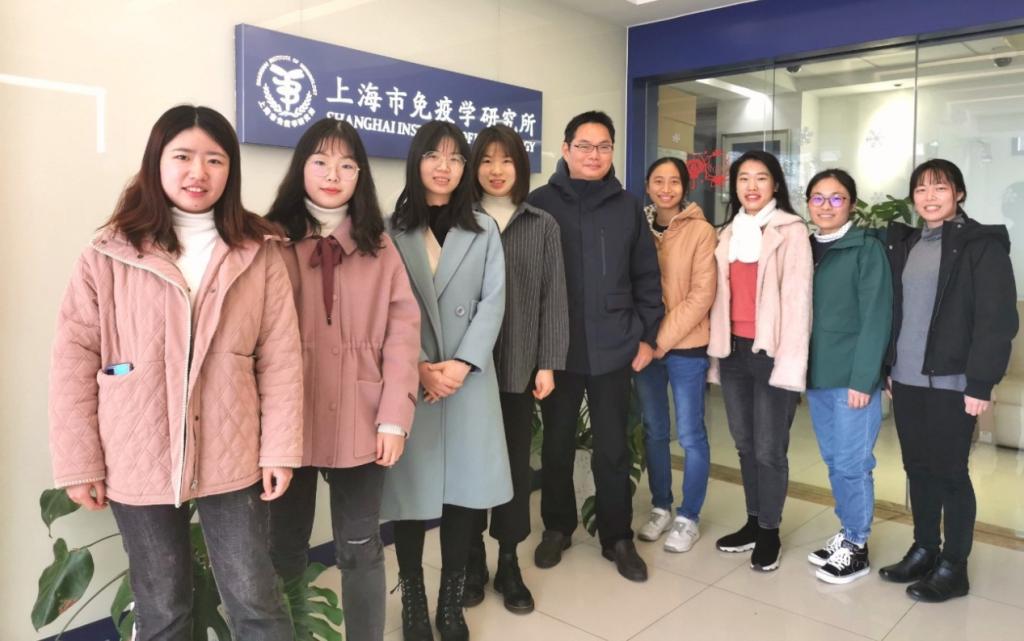
Laboratory of Bacterial Pathogenesis

Lab Leader: Yao Yufeng
Lab Name: Laboratory of Bacterial Pathogenesis
Lab Info:Research interest of the lab:
1. Pathogenic mechanism of important pathogenic bacteria
2. Interaction between important pathogenic bacteria and the host.
This group is currently undertaking a number of Youth project, General Program, Key Program of National Natural Science Foundation of China. Our group has 1 group leader, 1 associate professor, 1 lecturer, 1 senior experimentalist, 1 postdoctoral fellow, and 8 graduate students. With the research leader as the core, young and middle-aged teachers take the lead, and graduate students as the main body, the laboratory is a young and energetic team. The research group provides team members with a personalized learning and working environment, sufficient space for their future development. We welcome honest and hard-working students who are interested in bacterial pathogenesis and human health to apply for our group. We also welcome researchers who are interested in pathogenic mechanism of bacteria and bacteria-host interaction to join us.
Lab Members:
Name |
Title |
|
Ni Jinjing |
Senior Experimentalist |
nijinjing45@163.com |
Wang Danni |
Lecturer |
wangdanni@shsmu.edu.cn |
Tao Jing |
Associate professor |
taojing00@sjtu.edu.cn |
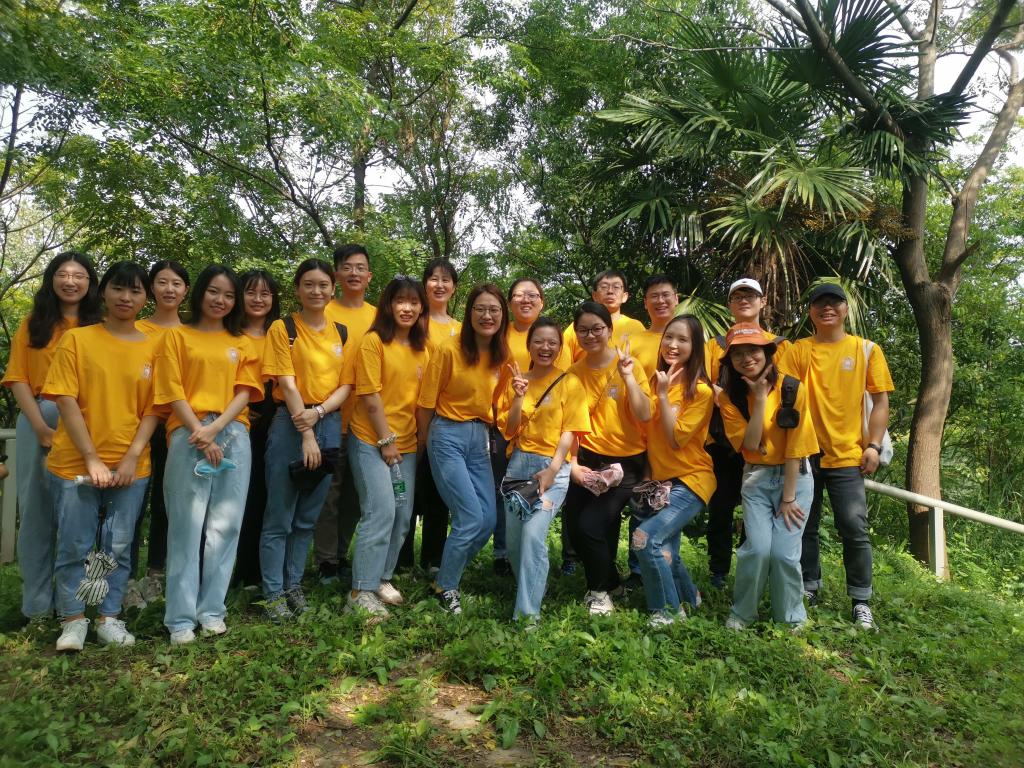
Laboratory of Immune Regulation Research

Lab Leader: Liming Lu
Lab Name: Laboratory of Immune Regulation Research
Lab Info:Our research areas include immune regulation in transplantation and tolerance induction, 109 academic papers were published, including 56 SCI papers, 3 patent authorization and 2 patent applications. We first reported: 1. Low doses of Chinese medicine drug Trichosanthin in the negative regulation of the immune system, and identification of functional domains of Trichosanthin in immune tolerance in transplantation; 2.Th1/Th2 subset conversion via mCIITA and NOD receptor, providing a basis for modulating type I immune response in transplantation and autoimmune diseases. The results have been published in Nature, Nature cell biology and other journals. PI has been selected into Shanghai Pujiang Talent Plan, Shanghai Dawning Scholar, Shanghai Science and Technology Bright Star Talent Plan and presided over 15 national and municipal projects, participated in more than 10 national 863 and 973 projects, Shanghai Municipal Fund and Ministry of Health projects.
Lab Members:
Name |
Title |
|
Xuping Ding |
Intermediate professional |
dingxuping1990@163.com |
Yafei Hou |
Intermediate professional |
houyafei1016@163.com |
Xue Wang |
Ph.D. |
15045030725@163.com |
Kefan Wang |
Ph.D. |
wkf523@sjtu.edu.cn |
Qian Wu |
Master |
673272228@qq.com |
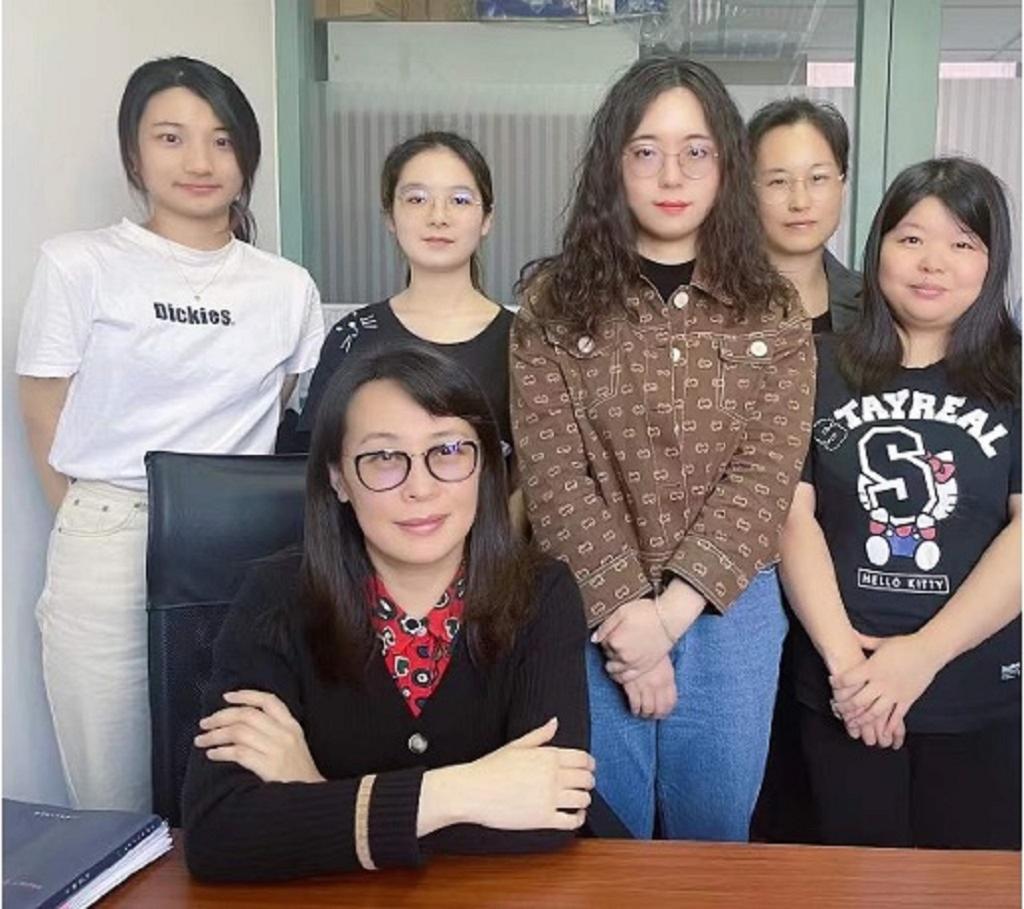
Laboratory of Immune Microenvironment

Lab Leader: Zhiduo Liu
Lab Name: Laboratory of Immune Microenvironment
Lab Info:Research interest of the lab:
1. Pathogenic mechanism of important pathogenic bacteria
2. Interaction between important pathogenic bacteria and the host.
This group is currently undertaking a number of Youth project, General Program, Key Program of National Natural Science Foundation of China. Our group has 1 group leader, 1 associate professor, 1 lecturer, 1 senior experimentalist, 1 postdoctoral fellow, and 8 graduate students. With the research leader as the core, young and middle-aged teachers take the lead, and graduate students as the main body, the laboratory is a young and energetic team. The research group provides team members with a personalized learning and working environment, sufficient space for their future development. We welcome honest and hard-working students who are interested in bacterial pathogenesis and human health to apply for our group. We also welcome researchers who are interested in pathogenic mechanism of bacteria and bacteria-host interaction to join us.
Lab Members:
Name |
Title |
|
Siming Liu |
Assistant Research Fellow |
simingliu2017@shsmu.edu.cn |
Wenjing Yu |
Engineer |
wenjingyu@shsmu.edu.cn |
Xin Chen |
Ph.D. |
keney0651@163.com |
Mengyao Li |
Ph.D. |
limengyao28@163.com |
Yao Ma |
Ph.D. |
maayao@163.com |
